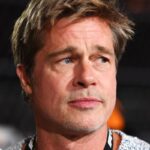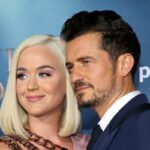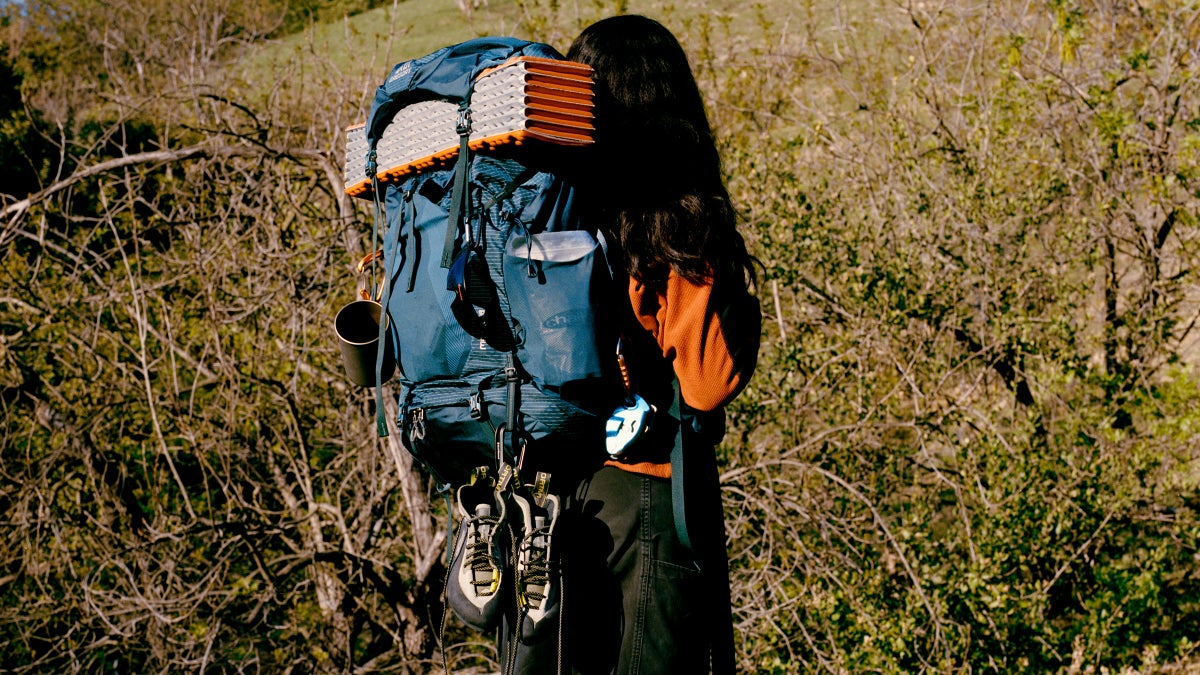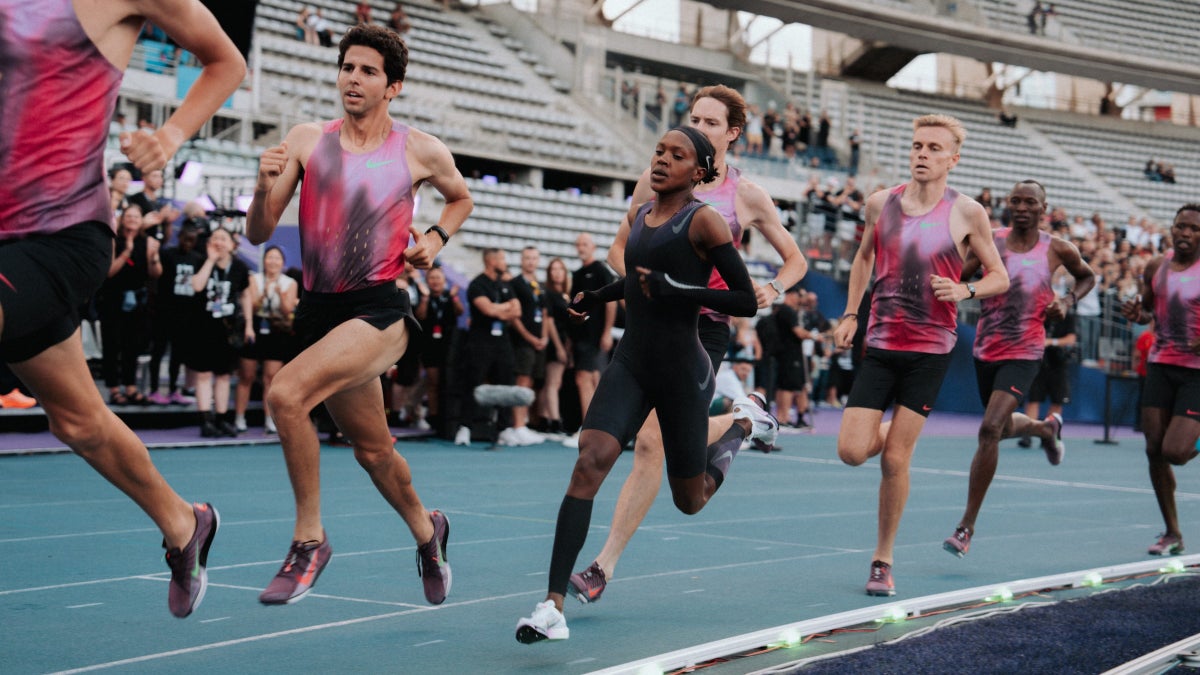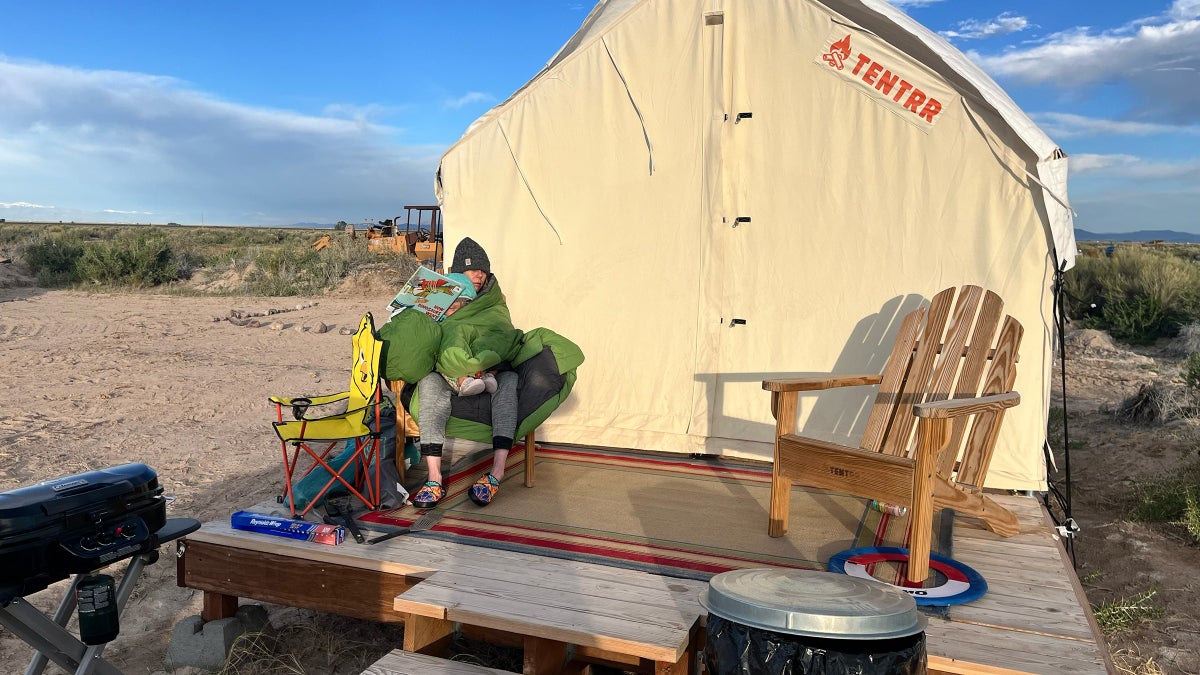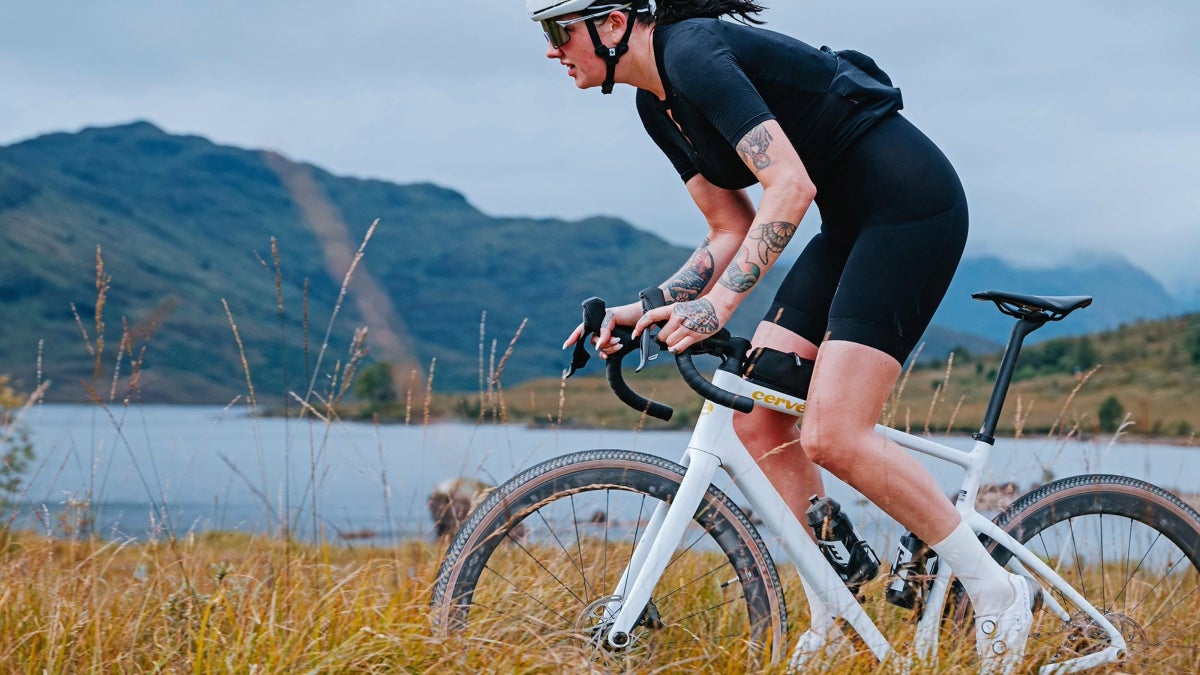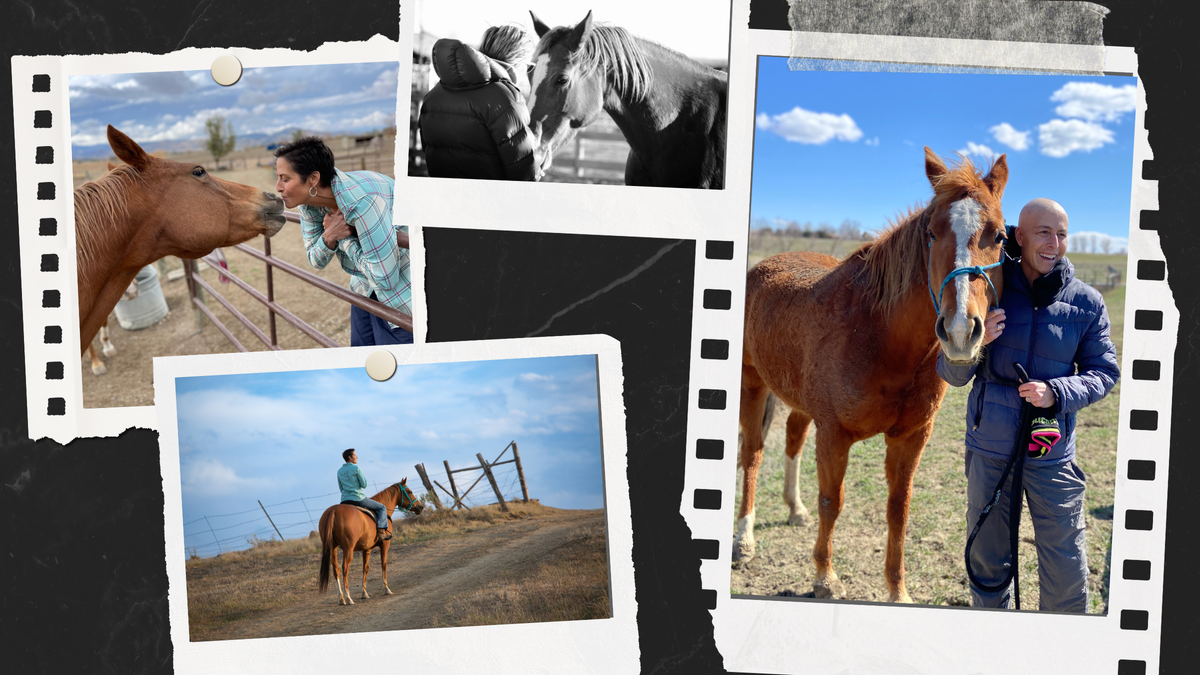
Siri Lindley had done it all—she had become the number one triathlete in the world, built a successful career coaching Olympians, and was happily living with her wife Rebekah in Colorado. But in 2019, she was diagnosed with a form of leukemia that had a less-than-ten percent survival rate. Her world was turned upside down. In the months that followed, Lindley fought for her life. There were times when she was terrified she wouldn’t make it, but through it all, spending time with her rescue horse, Savannah, reminded her how to overcome, love, and heal. Siri and Rebekah now run two non-profit organizations that rescue horses from slaughter and abuse. To date, she has saved 343 horses.
Here’s her story as told to writer Julia Ries.
When I rescued my horse, Savannah, I had never owned or ridden a horse before. But over the previous years, I’d gotten to know one, named Giselle, near my home. I would walk my dogs near her pasture, and interacting with Giselle always left me so calm and at peace. The experience made me want a horse of my own one day.
So, in 2016, I decided to visit the Colorado Horse Rescue to see a 23-year-old horse named Calypso, who was barely able to move. When I arrived, I met the head trainer, Sarah, who recognized me as a world champion triathlete. I told her I wanted to meet Calypso, and she said, “Calypso is not the right horse for you. I have another one who’s perfect.”
She took me to meet Savannah, a horse that was much bigger than Calypso and only six years old. Savannah completely ignored me, but there was something about her.
“Why do you think she’s the horse for me?” I asked. Sarah shrugged and said, “I just need you to trust me.” So, I did.
It wasn’t until after I adopted Savannah that I learned she had been nicknamed “The Trainer Killer” because no one could control her. But Sarah saw potential in me. She knew that, as a triathlete, I didn’t give up easily—and figured I could handle a horse like Savannah. She believed in me more than I believed in myself at the time. And she was right.
I thought: If I could go to the Olympics or win a World Championship, I would be worthy of love.
I started working with Sarah, and she taught me how to train and ride Savannah. Horses are incredibly sensitive to energy, body language, and intention. I learned how to influence Savannah’s movement without ever touching her or using force. By shifting my position, I could ask her to move forward. Every step I took, every shift in my posture, the speed and rhythm of my movement—it all communicated something. I was amazed that I could lead this 1,500-pound, magnificent, and powerful animal with such subtle cues. Over time, Savannah started to look to me for direction, reassurance, and connection.
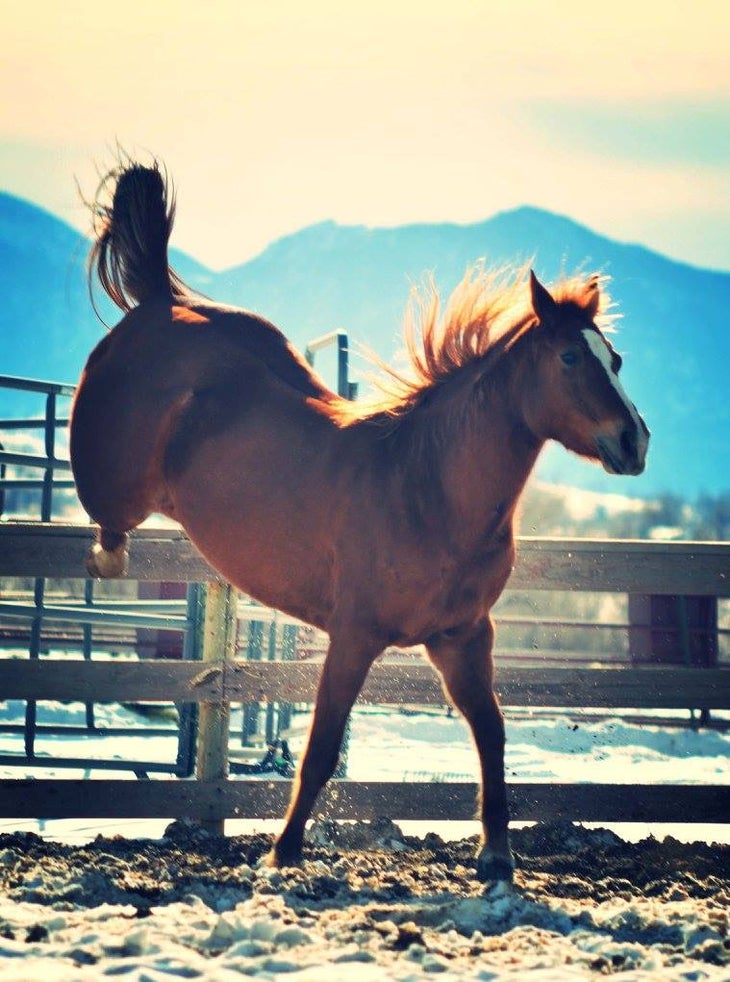
Before I met Savannah, I was terrified of heights, but I overcame that to ride her. It was one of the scariest—but most rewarding and beautiful—things I’ve ever done. I eventually built a barn and rescued over 30 horses from neglect and abuse. (The video below captures the bond between me and my sweet girl. Yes, she really does love apples that much.)
Life was good—until 2019. I had been feeling very fatigued and achy, but I had just turned 50 and chalked it up to age. Then I went in for some routine bloodwork ahead of a hip replacement. The results were abnormal. The doctor quickly scheduled me for a bone marrow biopsy and a panel of other tests. A week later, I was diagnosed with acute myeloid leukemia, or AML. I was told I had a less-than-ten percent chance of survival. It doesn’t get any more serious than that, but I was determined to fight.
Back in 1993, I decided I wanted to be the best triathlete in the world, even though I didn’t know how to swim. It was ridiculous, and people laughed at me. I had recently realized I was gay, and my dad subsequently cut me out of his life. I felt worthless, unlovable, and undeserving of success and happiness. I pulled myself out of that hole of despair and was determined to prove to myself—and everyone else—that I could do something extraordinary. I thought: If I could go to the Olympics or win a World Championship, I would be worthy of love. (That wasn’t great self-talk, but I’ve since forgiven myself for being so critical.) I began training and competing, and eight years later, I became a world champion.
In 2003, I retired at number one in the world and poured all my energy into coaching other athletes. In doing that, I lost part of myself. I was so focused on helping others that I forgot about my own strength and confidence. I felt like my achievements were far in the past. Without them, I wasn’t sure who I was anymore. Then Savannah showed up. Working with her reminded me that I can do hard things, work through my fears, and overcome any challenge. Because of Savannah, I felt equipped to do whatever I possibly could to conquer this disease.
So, I enrolled in two clinical trials—the first would use medications to wipe out the cancer cells; the second was a transplant—and immediately started treatment. I did a week of intensive chemotherapy and radiation, then went back to my house in Boulder, Colorado, for a couple of months, where I continued to take medication to eliminate any remaining cancer cells. I was scared all the time. But when I was outside with my horses, the fear dissipated. Out in the pasture, I had the strength to tell myself: You can do this.
Day by day, I fought to keep a grip on hope. And over a span of two months, the cancer stopped spreading. For the first time in months, I let myself believe I might live.
Once I completed the medication protocol, it was time for me to enter the second clinical trial in which I would receive a bone marrow transplant, a type of stem cell transplant that replaces damaged bone marrow with healthy tissue capable of producing cancer-free blood cells. The procedure and subsequent treatment would take weeks. I knew there was a chance, however, that things might go downhill, and that this could be the last time I came home.
Before I left, I rode Savannah around the property. I felt like she believed she was going to see me again. After that ride, I felt ready. I thought: it’s time to fight.
I went to the hospital a week before the procedure for a massive chemotherapy and radiation session. The doctors had to basically bomb my system and wipe out everything before they could do a bone marrow transplant. Then I had the transplant, which was a success. After that, I was required to stay near the hospital for ongoing treatment and tests.
This is the thing about horses—they meet you where you’re at. They can sense what you can and can’t do.
That period was one of the most difficult I’ve ever been through. There were days when I threw up sixty times and felt like I was dying. I lost 25 pounds. I also started to feel depressed. I hated knowing that my horses and ranch were 45 minutes away. It was brutal. But as the weeks went on, my symptoms eased, and I slowly got better. I pleaded with my doctors to let me go home, and they eventually did.
When I returned home, I was still so weak, but I got out of the car and walked right to Savannah. It was raining, and even though she hates being wet, she ran to me. She let me kiss her all over. I was completely overcome with joy and relief. For so long, I didn’t have her. I needed her, and there she was. It was then that I knew I was going to be OK.
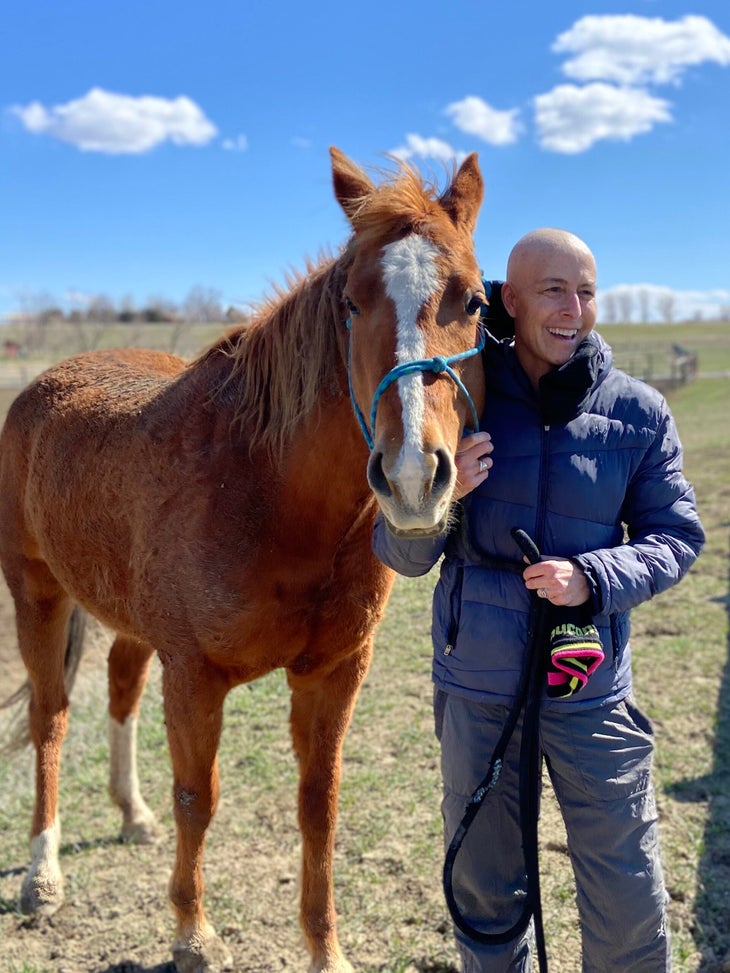
After that, all I wanted to do was ride her. My wife chided me, “Siri, you have been fighting for your life—you can’t ride her in your condition.” She was terrified, and understandably so; Savannah is the kind of horse that takes off before your feet are in the stirrups. But I got on Savannah anyway. This time, she let me put my feet in the stirrups. That was new. Then, she took tiny, careful steps. We barely moved. Again, she knew exactly what I needed. I started crying tears of joy.
This is the thing about horses—they meet you where you’re at. They can sense what you can and can’t do. After that, I rode her once a week as I continued with my treatment. We would go so slowly that we’d only cover about 80 feet in half an hour.
One day, a few months after the transplant, I got on her and she was suddenly back to her old ways—she took off before my feet were in the stirrups. I finally got her to stop. “Savannah!” I shouted, “What are you doing? I’m weak and I’m sick!” I didn’t understand why she was being so rough with me. I was furious. A few days later, I got the call from my doctor that I was cancer-free.
That’s when I realized—Savannah knew before anyone else. She was saying: Mom, you’re no longer a patient. It’s time to live again.
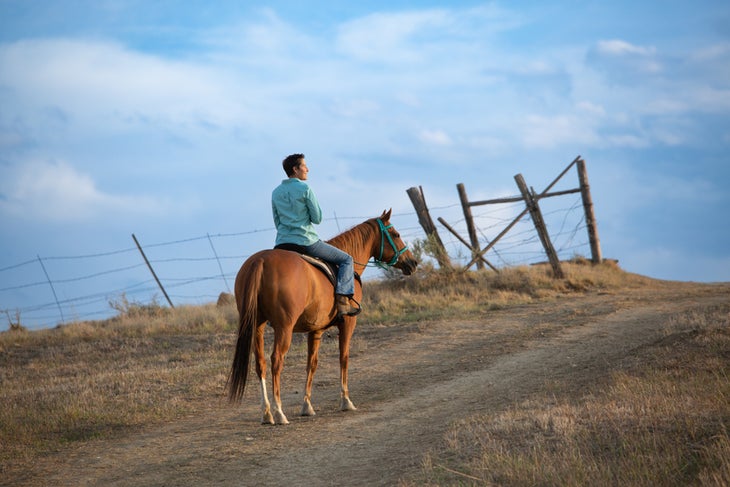
A new film, Tri Me: The Siri Lindley Story, takes viewers on an emotional trip through Siri Lindley’s life. In it, she and her athlete friends and family members get candid about her journey to becoming the number one triathlete in the world, how she came to terms with her sexual orientation, and her resilience in the face of a cancer diagnosis. Tri Me premieres this year. Follow Siri on Instagram for more updates.
The post World Champion Triathlete Siri Lindley Is Cancer-Free. Her Horse Saved Her. appeared first on Outside Online.

